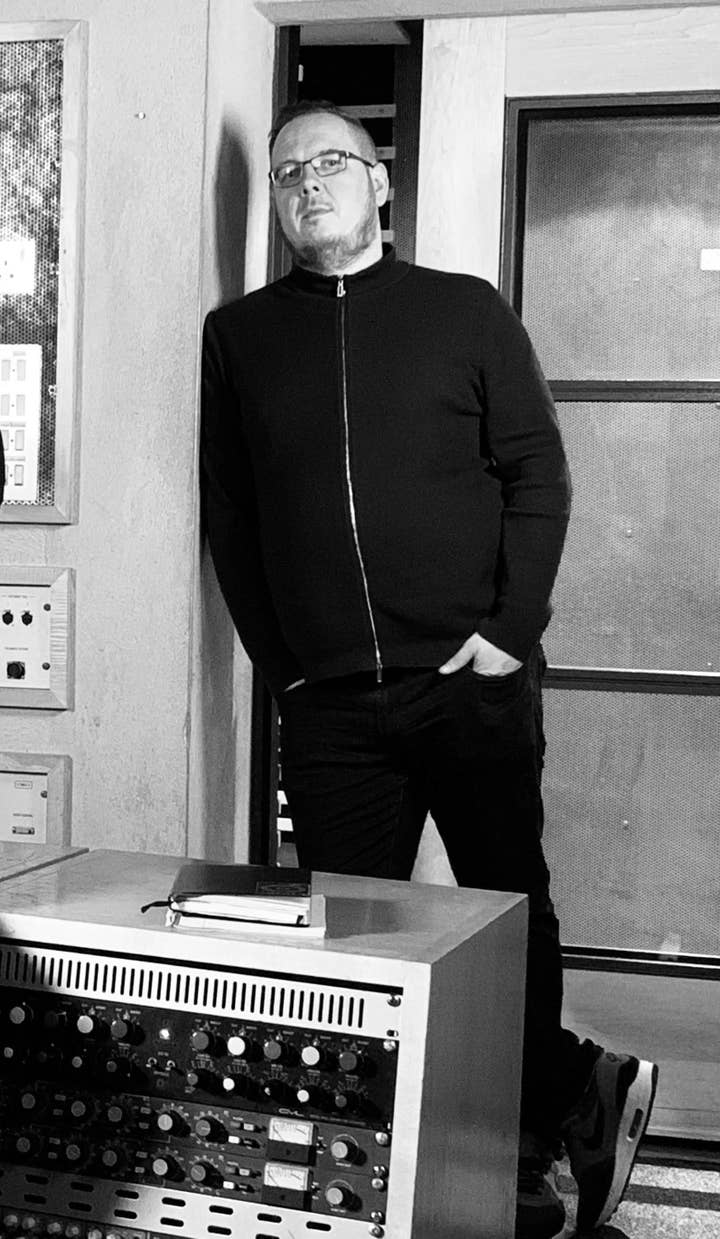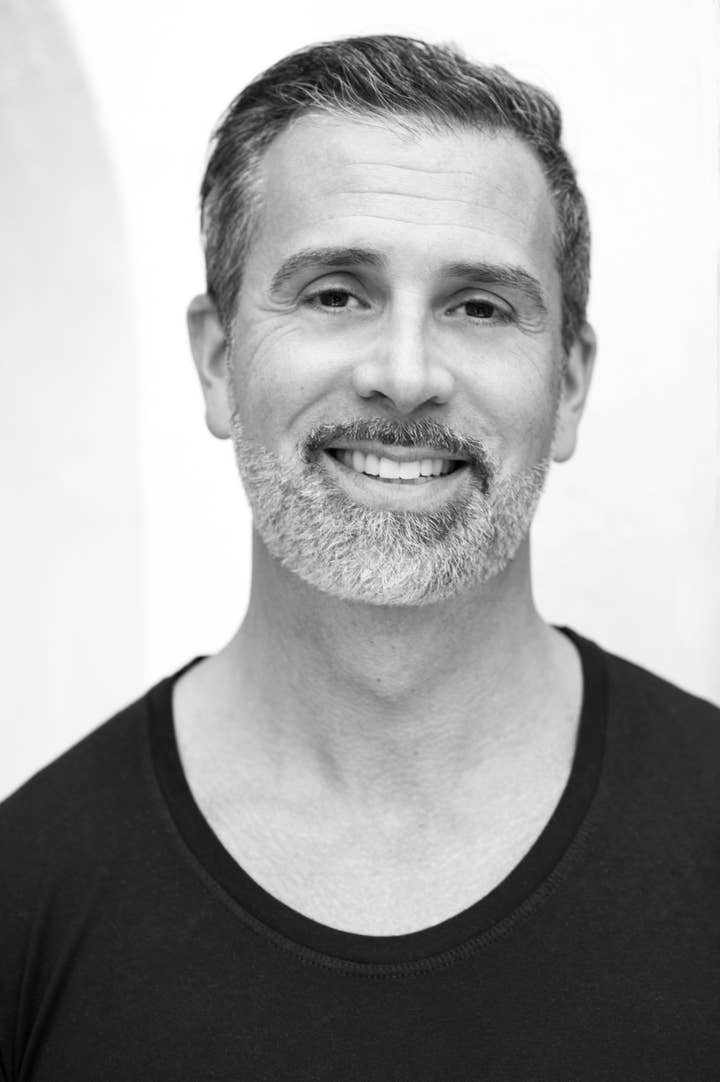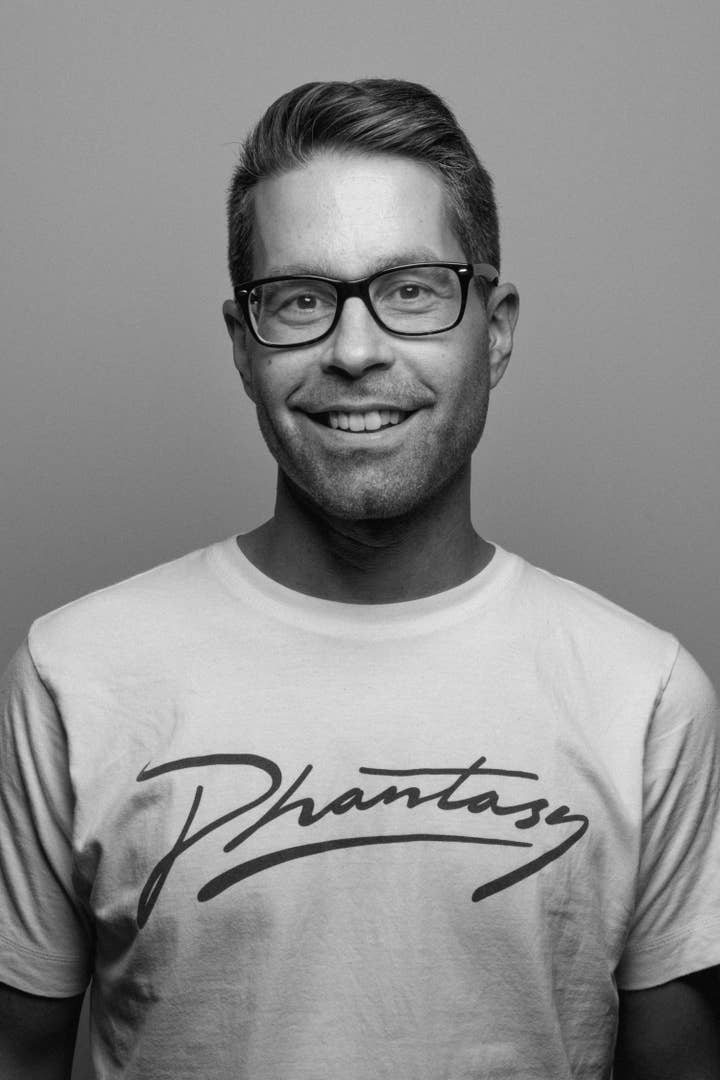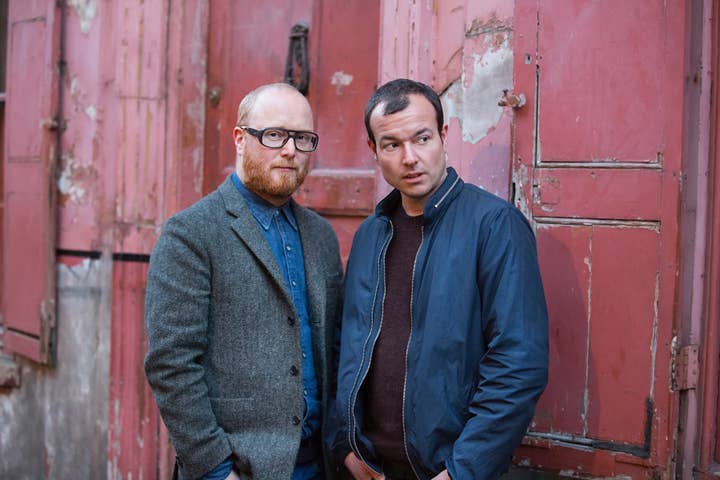How to get your music placed in a video game
The GamesIndustry.biz Academy talks to experts from both industries to create the ultimate guide to getting your music placed in a video game
Back in 1995, PlayStation had the clever idea of licensing music from some of the UK's biggest electronica acts for the PAL version of its futuristic racing sim, Wipeout. Psygnosis and PlayStation had created its very own Mario-Kart-on-drugs for a generation of nightclub goers, and hard-hitting music from Leftfield, Orbital and The Chemical Brothers couldn't have been a better fit for players as they piloted space crafts around neon-clad racetracks at thousands of miles per hour.
Wipeout's music was celebrated in reviews at the time and became a defining characteristic of its style. The game's success led to separate CD and vinyl soundtrack releases, with subsequent entries in the series featuring music from The Prodigy, Paul Van Dyk and Sasha. Wipeout will forever be associated with that breakthrough era of mid-'90s British dance music, and while it wasn't the first game to feature licensed tracks, it set a new gold standard for showcasing what can be achieved when the right music is chosen for the right game.
Fast forward 25 years and perfecting this formula has now become a business in its own right. There are now dedicated teams within the industry comprising audio directors, music supervisors and A&R experts, all of which are responsible for selecting the music that appears in video games. How that music is used will often depend on the game. It might end up being used in playlists and in-game radio stations such as those in Grand Theft Auto and Watch Dogs, or music might be broken down and edited to use in PR and marketing materials such as launch trailers.
With the COVID-19 pandemic putting a halt to the majority of live shows, bands and artists are turning to games to reach new fans
With the COVID-19 pandemic putting a halt to the majority of live shows and performances, bands and artists are turning to games to reach new fans, as managers, agents and record labels explore opportunities on new platforms. But getting a foot in the door isn't as easy as it seems, especially with so many important conversations around music sync -- the process whereby music is combined with media -- happening behind closed doors.
To help unravel some of these secrets, we asked experts from both the games and the music industries to share tips on how bands and artists can get their music featured in a video game.
Who decides what music appears in a video game?
Larger studios may have in-house teams of music supervisors and A&R experts that work alongside record labels to identify the best music. Other studios will consult external music experts, such as music consultancy company Feel for Music, to help with music discovery and the licensing of tracks to meet briefs. Feel For Music's director, Ben Sumner, says that these briefs can vary enormously depending on the game and the team you're working with.
"Most people like music, but some are huge music fans from the off, and that often dictates at what point in the project we come in," he says. "Larger games will have audio directors, brand directors and game directors, all of which will have strong ideas on the sound they want to achieve with the game. Sometimes we come in and we're just fine-tuning what's already there. Other times, people don't know what they want at all."

"A big part of our role is objectivity, because people's music tastes are so subjective," he continues. "It's about trying to bring in that objectivity to show how music appeals to certain audiences, how it fits with the game, and the cultural cachet that brings in with the whole branding."
Alex Hackford, head of A&R at Sony Interactive Entertainment America, says that the gargantuan growth of the games industry has made explaining the value of these collaborations to record labels, publishers and managers much easier.
"The ease of access of having front-end conversations with labels and publishers about what the value of video game involvement... that bar has lowered because people have seen the impact of it," he says. "The ability for us to have more buy-in from partners in projects is getting a lot easier.
"On Spider-Man: Miles Morales we did four original tracks for that game that were released simultaneously on DSPs [digital service providers], in-game and as a physical release. We did music videos for each track that were all gameplay videos, and we did similar things in our partnership with RMCA for Death Stranding. I don't think I speak out of turn when I say all of us are looking to do more of those types of things."
Getting your music discovered
You want as many people to hear your music as possible, but there's no magic formula or quick solution for getting your music into a video game, as Duncan Smith, head of music at Sony Interactive Entertainment Europe, explains:
"Every game has different criteria, so it depends on what the game is trying to say and what kind of music it requires: is it gonna benefit from having a contemporary tracklist with big artists on there, or will it benefit looking at more obscure bands that can enhance the experience?"
With a seemingly infinite number of tracks available for music supervisors to choose from, here are some tips to increase the chances of your music getting discovered by the right people.
- Have your music on as many platforms as possible

A lot of proactive effort goes into identifying the latest music talent for video games. Music supervisors don't just sit there waiting for music to come their way, so having your music on as many platforms as possible -- whether that's Spotify, iTunes, Deezer, Google Play or YouTube -- is only going to increase your chances of being discovered.
"I do use Spotify a lot because it's nice and easy to use while also having a great interface," says Stephen Root, vice president of development creative services at Codemasters. "When we were working on our soundtrack for Dirt 5 at the time, Spotify was an easy way to build a playlist and share it around with the key people in the company."
Making your music widely accessible can lead to some pleasant surprises, too. Jim Hodge, the vocalist for metal band Mastiff, recalls how he was approached out of the blue by CD Projekt Red, which resulted in their track Acid Breather being placed in Cyberpunk 2077.
"We honestly thought it was a wind-up until we started speaking to them properly," he says. "They wanted an unreleased track and we'd literally just been in the studio the month before to record. At the time, we were out of contract, which made it much easier to release the track. Having a track on one of the biggest games ever released is absolutely nuts, and hearing our music in the game still freaks us out."
- No label? No problem
There are benefits to being signed to a major record label, as you'll have people at that label working to place your music. Stephen Root attends a lot of specialised listening sessions with record labels, where he gets to hear unreleased music and get an idea of what artists are planning further down the line.
"I spend most of my time working on who's up and coming," he says. "Figuring out which artists these labels are investing their time into and why they think are going to be really successful artists."
That said, you don't need to be signed to a label to get your music in a game. There are plenty of opportunities for unsigned artists or those on independent labels.
"Most of the time, it doesn't matter how many hits, streams or views that artist has had"
Duncan Smith
"I always want to give people a shot," Root continues. "I'm really into up-and-coming new artists, so I say to people [labels and managers] throw all of the new stuff my way and let me wade through it."
Sony's Smith says bands shouldn't hold back if they have a small fan base either.
"One of the reasons I love this job is that, most of the time, we're looking for music that enhances the experience of the game or scene. Most of the time, it doesn't matter how many hits, streams or views that artist has had. The priority is to find music that enhances that experience, makes it compelling, and connects with the player. So in that sense, you don't have to be on a major label."
And just because you're not signed to Sony Music or any of its subsidiaries doesn't mean you'll never be able to get your music in a PlayStation game, as Sony's president of premium content A&R, Tom Mackay, explains:
"At the end of the day, good music is good music," he says. "Is there a predisposed goal to predominantly put Sony Music artists into our projects? Of course there is. But would I be shortsighted and at the same time potentially shackling the game or project by only considering Sony artists? Of course I would be. It's a careful balance. If an amazing record came in that was perfect for the game and everybody loved it, we would never stand in the way of that."
- Have a strong identity and a unique sound
"Don't just try and do epic, orchestral music because everybody does that. If you have a unique instrument, use that instrument"
The Flight
Making a strong first impression counts, so having your own unique style and sound can work wonders. Weighing in from a composer's perspective, Joe Henson from musical composition duo The Flight says it's important for artists to find their voice.
"Don't just try and do what other people do because they already do that," he says. "Don't just try and do epic, orchestral music because everybody does that. If you have a unique instrument, use that instrument."
Likewise, Smith believes an artist with a one-of-a-kind sound is more likely to make a lasting impression on the right people.
"Develop your own sound and have a strong identity. Don't chase the tail of whatever is popular in games or in music sync," he says. "Stick to the fundamentals of developing your own identity, and then make the effort to try and get in touch with the likes of myself and Alex. Find out what we're working on, try and develop a relationship, and if you make the effort it will cut through.
"If you have a strong identity, we could end up coming back a year or so later if there's something that requires your style -- whether that's industrial, drum 'n' bass, folk or whatever else. Do what you do and do it with passion."
How to nail your approach
Ultimately, the aim is to get your music out there and get it heard by as many different decision makers as possible -- but getting your emails opened by the right people can be a battle in itself. Here are some tips to help improve your chances.

- Know where your music fits
A lot of video games have been branded in a way that makes them suited for a particular style or genre of music. As an example, the NBA 2K series is particularly suited to rap and hip-hop, while the music in Life is Strange is mainly from indie and folk artists. Rather than sending your music out to as many different contacts as possible, it's important to consider which titles or franchises would be the best fit.
"You want there to be a seamless creative bond of connectivity between the artist and what they represent -- what they sound like, what they look like and what they feel like, and how that fits with the game itself," says Sony's Mackay. "You spend an immense amount of time with the director or the game developer to understand their vision, and then you meticulously start working through bands from all over the world to try to find those that will fit."
- Research the right people to contact
Once you've worked out where your music fits, you should be able to work out which contacts are the most relevant to your sound. "Most people don't want to do that work," Sumner says, so use that to your advantage.
You can usually find the names you need by looking at a game's credits to check out the names in the audio and music teams, or you can head to Google and LinkedIn and start searching for music supervisors and audio directors. If you've been impressed by the choice of music in a launch trailer or other video, check to see who's credited in the description on YouTube videos.
- Don't be afraid to ask for help from the experts
Of course, if you simply don't know where to start when it comes to finding the right people to contact, you can always get someone to do it for you. Root encourages bands and artists to have upfront conversations with their management or agents about any interest they might have in video games to make sure they're considered for opportunities.
"You spend an immense amount of time with the director or the game developer to understand their vision"
Tom MacKay
"I would say to anybody that's an artist, either on the cusp of being either signed or that has just been signed, to explain to their management about their level of interest in gaming," he says. "Ask them to find and approach companies to see where they can fit your music. I would definitely do that because I think it's a really great thing to do."
In instances where managers or labels might not have the experience to do this, hiring a sync rep -- someone whose job it is to keep on top of commercial opportunities and get their clients' music in front of the right people -- is another option that Duncan Smith recommends to any artists that are serious about getting their music in a game.
"It's important to make the effort to find out what we're working on, and I think that's where third-party sync reps can help," he says. "Especially because it's difficult to keep up to speed with what music supervisors are working on and develop that relationship. If you don't have a label or a publisher with those types of relationships with music supervisors, find the right sync rep who can do that for you."
- Tailor your approach
Regardless of which video game you'd like your music to appear in, Hackford says that in the case of formal pitches, it's important for labels, managers and artists to tailor them the person they're contacting. Making an effort to show your knowledge of a specific game can go a long way -- as long as it's a game or series that the person you're pitching to has input on.
"If you have a formal pitch, make sure you know who you're pitching to and you're referencing games that they're working on, rather than referencing cross-platform products that aren't gonna be as relevant to their work."

Hackford's colleague, Duncan Smith, agrees.
"Trying to develop a relationship and make the effort will always cut through -- especially compared to some of the emails that we get where people have 50 different supervisors on one email and just hit send, without making the effort to find out what we're working on."
- Be persistent
As a busy music consultancy business, Feel For Music receives between 200 and 250 emails every single day from bands, artists, labels and publishers looking to get their music into games. Even if he wanted to, Sumner wouldn't have the time to listen to all of the music he's sent on a daily basis.
"It might be hard for us to check out your music, but if you're persistent, focused, and understand the places where your music might fit, that's a great starting point," he says. "Most people that get in touch with us, we'll give them a chance. If someone drops me an email and it gets missed but sends me a follow-up, I'll make sure it gets checked."
Sumner explains it was this approach from Sufjan Steven's manager that ended up getting the artist's music into Life is Strange spin-off The Amazing Adventures of Captain Spirit.
- Format and structure your music correctly
Bands and artists need to make sure they have their songs available in a wide variety of file formats. If you're submitting music to be used in a trailer, for example, you should have access to the isolated tracks for every instrument -- known as "stems" -- as well as the track's complete stereo files. Anyone reworking music for trailers or in-game interactive elements needs access to stems so they can edit the music accordingly.
"Having your music in the right formats is really important," Sumner explains. "Do you have the instrumental version and do you have the vocals? We're always going to need stems. If I put something into a trailer I have to rework it."
"Having your music in the right formats is really important. Do you have the instrumental version and do you have the vocals?"
Ben Sumner
Another suggestion for bands and artists submitting music is to rearrange it themselves in a structure that's more suited for in-game placement or an advert.
"If it's a trailer, instead of your track being verse, chorus, verse, chorus, why don't you have a version of the track that's just intro, middle, ending, which is how trailer music usually works," Summer suggests.
- Plan ahead
The Flight has worked across a variety of sectors and believes the games industry is one of the hardest to crack, whether you're looking to get a foot in the door as a composer or get your music featured in a game.
"With film and TV, you can find out what's going into production -- you can meet people and they'll tell you what's happening," the group's co-composer Joe Henson says. "In games, you sometimes won't know what people are working on until you have that initial big meeting. We'll finish working with Ubisoft and have no idea what they're doing next. Work comes completely out of the blue, and because of all the NDAs, video games can sometimes be difficult to get into"
While new IPs are harder to crack, it's possible to look at annual franchises such as FIFA and Call of Duty to work out how the releases of future video games could fall in line with release plans for your own music.
"There are a lot of annual games coming out and you can generally work backwards as an artist," Alex Hackford explains. "Eight to ten months pre-release is when we're working on music; when we're in that pitching process and actively working on music for a game."
Consider the release plans for your own music too. If you're sitting on tracks that you haven't officially released yet, make sure you let the people you're contacting know. It's always an added bonus for studios when they're able to work with promising artists that can debut music in their video games.

Meeting the requirements of a video game music brief
- Make sure you own the rights to your music
Licensing music is a tricky business, so if you're signed to a label or have worked with a label in the past, make sure you know who owns the various rights to your music. If there are any uncertainties regarding ownership, it's important to address these at the start of a project.
"I'm dealing with a scenario now where there's a track I really like but there's a lot of questions around ownership, so I'm probably gonna have to drop it," says Hackford. "That's the last thing you want when you've already got as far as getting the song into someone's hands."
- Maximise any opportunities you've given
If you're lucky enough to get your track featured in a video game, ask yourself if there's any additional value you can bring to the project. How can you make the most out of this collaboration? Is there an opportunity for you to work alongside the social media platforms promoting the game launch? Never shy away from asking these questions as they often lead to more opportunities.
"I love it if a manager says, the fee is whatever, but what else can you do for my artist," Smith says. "DJ Shadow's manager had that conversation when I was working on Driveclub -- we ended up skinning cars in the game with his album artwork, and that was purely from the manager being interested and asking questions that got me thinking and talking to the team. Always ask yourself 'what else is out there' and if you can you do any cross-promotion."
"I set three tiers of fees.... up-and-coming artists, artists in the middle ground of success, and then finally the big hitters"
Stephen Root
Amplifying a message can be as simple as retweeting something or using assets from the video game to do your own thing. Root from Codemasters explains how doing this worked out for one of the artists in Dirt 5: "One of the exclusives was a band called Broken Witt Rebels. They didn't just come in; they went all in and even made a music video using gameplay footage. We loved that."
- Be mindful of the studio's budget
Any kind of music placement requires a lot of planning, especially when you're coordinating unreleased music around an upcoming game. Root says it's important to be mindful of the budget at the start of any project. Careful planning around the music budget available for Codemasters' off-road arcade racer Dirt 5 allowed Root and the team to curate a mixture of debut tracks from up-and-coming artists sitting alongside bigger hits.
"I look at the overall budgeting from the start and then I think about that and look at how many tracks it could potentially give us, as well as how that would break down across the game." Root explains. "I set three tiers of fees in terms of what I would look at. The way that broke out was splitting it between up-and-coming or newer artists, artists that were in the sort of middle ground of success, and then finally the big hitters."
- Be realistic with your expectations around fees
Getting your song in a video game isn't going to make you a millionaire overnight. While some video game composers benefit from additional contract terms that grant royalties on video game scores, the reimbursement for contributed tracks from artists is largely different.
"In the early days with GTA they used to offer a royalty on tracks," says Sumner. "The people that put music into those earlier GTA games did very well out of those placements, whereas now it's a fixed-rate type of scenario, which is a big fundamental change.
"In the early days with GTA they used to offer a royalty on tracks, whereas now it's a fixed-rate scenario, which is a big change"
Ben Sumner
"I think royalty payments are generally a thing of the past, but there are a few exceptions out there -- particularly writers registered with certain European PROs [performance rights organisations], as they have specific rules about licensing music into games. I've also heard about mobile games with zero or modest upfront budgets offering royalties."
Duncan Smith believes that being reasonable with your expectations can lead to more money in the long-run.
"Try to have realistic expectations about a deal. Don't get crazy imagining you're gonna have a life-changing sum of money in your pockets. It's more about being realistic, in addition to being good to work with, being helpful, and providing us with all the stuff we need.
"If we have a positive experience working with the artist, label or the publisher, we're more likely to come back to you. So you can build up repeat business and a long-term relationship, rather than just a one-off fee."
The benefits of getting your music in a video game
The impact of getting your music in the right video game cannot be understated. The lead singer of punk-rock band Goldfinger told Kerrang in a 2020 interview that the track Superman became the "biggest song we've ever written," thanks to its appearance in Tony Hawk's Pro Skater. For other bands, appearing in the series has been like wearing a "badge of honour."
While appearances in games are now much more commonplace for bands than they were 20 years ago, the relatively recent phenomenon of artists debuting music in video games means they can instantly reach millions of players.
"For Marvel's Spiderman: Miles Morales on the PS5 we did two original tracks with an artist named Lecrae, whose streaming numbers jumped significantly on the back of those two tracks alone," Hackford says. "He [Lecrae] is an independent artist at this stage, so that jump in audience and reach from having access to a game like Spider-Man: Miles Morales is substantial."
Another example of the symbiotic relationship between the games and music industries can be seen in Hideo Kojima's Death Stranding, which featured new music from Bring Me The Horizon, CHVRCHES, Major Lazer, Khalid and many more. While the COVID-19 pandemic has created an uncertain landscape for musicians, it's also accelerated the industry's movement towards video games, whether that's GTA V Online dropping a massive 250 new tracks in its December DLC update, or Katy Perry and Post Malone collaborating with The Pokémon Company.
"The gaming industry will play a larger and larger role in the overall way in which the music industry thinks, operates and strategizes every day going forward," says Tom Mackay from Sony. "I think the reasons for that is because of A), the effectiveness in the marketplace when you get it right, and B), the natural joy and excitement it brings to both the artists and fans.
"What I can say with confidence is what has been achieved so far is a literal scratching of the surface. These gaming platforms are the new water cooler. They are the news meeting place, especially for millennials and for younger generations."

